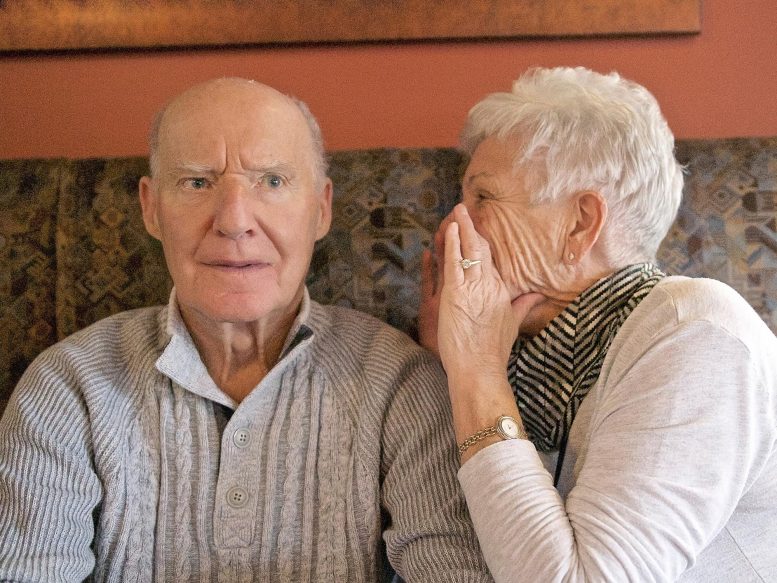
A recent study led by researchers at the Johns Hopkins Bloomberg School of Public Health found that older adults with severe hearing loss were more likely to have dementia, however, the likelihood of dementia was lower among hearing aid users compared to non-users. The study, which analyzed a nationally representative sample of over 2,400 older adults, supports previous research that suggests hearing loss may be a contributing factor to dementia risk over time, and that treating hearing loss could lower dementia risk.
Findings highlight the potential benefit of hearing aids.
A new study found that older adults with greater severity of hearing loss were more likely to have dementia, but the likelihood of dementia was lower among hearing aid users compared to non-users. Scientists at the Johns Hopkins Bloomberg School of Public Health led the research.
The findings, from a nationally representative sample of more than 2,400 older adults, are consistent with prior studies showing that hearing loss might be a contributing factor to dementia risk over time, and that treating hearing loss may lower dementia risk.
The findings are highlighted in a research letter published online on January 10, 2023, in the Journal of the American Medical Association.
“This study refines what we’ve observed about the link between hearing loss and dementia, and builds support for public health action to improve hearing care access,” says lead author Alison Huang, PhD, MPH, a senior research associate in the Bloomberg School’s Department of Epidemiology and at the Cochlear Center for Hearing and Public Health, also at the Bloomberg School.
Hearing loss is a critical public health issue affecting two-thirds of Americans over 70. The growing understanding that hearing loss might be linked to the risk of dementia, which impacts millions, and other adverse outcomes has called attention to implementing possible strategies to treat hearing loss.
For the new study, Huang and colleagues analyzed a nationally representative dataset from the National Health and Aging Trends Study (NHATS). Funded by the National Institute on Aging, the NHATS has been ongoing since 2011, and uses a nationwide sample of Medicare beneficiaries over age 65, with a focus on the 90-and-over group as well as Black individuals.
The analysis covered 2,413 individuals, about half of whom were over 80 and showed a clear association between severity of hearing loss and dementia. Prevalence of dementia among the participants with moderate/severe hearing loss was 61 percent higher than prevalence among participants who had normal hearing. Hearing aid use was associated with a 32 percent lower prevalence of dementia in the 853 participants who had moderate/severe hearing loss.
The authors note that many past studies were limited in that they relied on in-clinic data collection, leaving out vulnerable populations that did not have the means or capacity to get to a clinic. For their study, the researchers collected data from participants through in-home testing and interviews.
How hearing loss is linked to dementia isn’t yet clear, and studies point to several possible mechanisms. Huang’s research adds to a body of work by the Cochlear Center for Hearing and Public Health examining the relationship between hearing loss and dementia.
The study authors expect to have a fuller picture of the effect of hearing loss treatment on cognition and dementia from their Aging and Cognitive Health Evaluation in Elders (ACHIEVE) Study. Results from the three-year randomized trial are expected this year.
“Hearing loss and dementia prevalence in older adults in the United States” was co-authored by Alison Huang, Kening Jiang, Frank Lin, Jennifer Deal, and Nicholas Reed.
Reference: “Hearing Loss and Dementia Prevalence in Older Adults in the US” by Alison R. Huang, PhD; Kening Jiang, MHS; Frank R. Lin, MD, PhD; Jennifer A. Deal, PhD and Nicholas S. Reed, AuD, 10 January 2023, JAMA.
DOI: 10.1001/jama.2022.20954
Support for the research was provided by the National Institute on Aging (K23AG065443, K01AG054693).
Reported Co-Author Disclosures: Nicholas Reed, AuD, serves on the scientific advisory board of Neosensory. Frank Lin, MD, PhD, is a consultant to Frequency Therapeutics and Apple and director of a research center funded in part by a philanthropic gift from Cochlear Ltd to the Johns Hopkins Bloomberg School of Public Health. Lin is also a board member of the nonprofit Access HEARS.


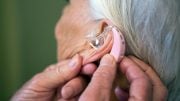
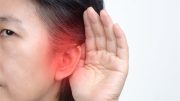
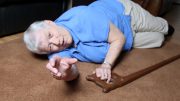
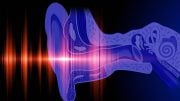



OK, I have been hard of hearing since age 3 and I don’t have dementia. It realy pisses me off that a blanket statement about hearing loss continues to paint a false assumption that all hearing deficits are equally damaging. These reports need to include the term “late onset” because that’s the problem, not hearing loss alone. Also, late onset hearing loss makes it hard to socialize in accustomed ways and if that was fixed, maybe there’d be less of an issue.
https://scitechdaily.com/new-research-reveals-startling-connection-between-hearing-loss-and-dementia-in-older-adults/
Where are the footnotes with your sources of proof??
I feel you were paid by hearing aid companies to publish this.
Apparently there are a number of people who need reading aids.
Is it a risk factor or is it a symptom? Comorbidity?
Bluetooth hearing aids work wonders. It’s joy to hear music again. The many sounds of life in the woods is remarkable: woodpeckers pecking, birds singing, frogs croaking, crickets chirping. Also the sounds of modernity you need for safety. Yep, would not be without them.